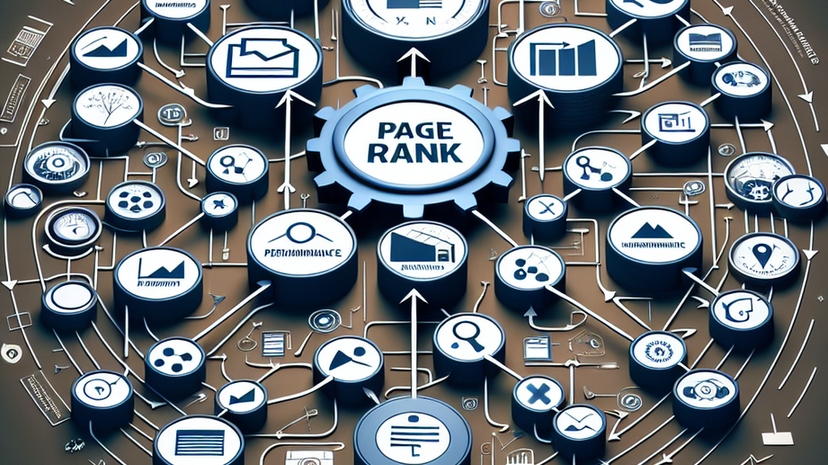In the ever-changing world of the internet, search engine optimization (SEO) has become crucial for website success. Among the many factors that contribute to a website’s visibility and authority, one stands out as the foundation of Google’s algorithm: PageRank.
PageRank, created by Larry Page and Sergey Brin in the early days of the internet, assesses the importance of web pages by looking at the quantity and quality of links directed towards them. This innovative concept works on the principle of “link juice,” where a webpage shares some of its PageRank value with the linked page, boosting its authority and visibility.
The importance of relevance cannot be overstated when it comes to PageRank. Links from websites with related content carry more weight. Google values high-quality links from reputable websites over many low-quality links. Emphasizing relevance ensures that valuable and informative content gets recognized.
Once upon a time, Google displayed a visible PageRank score through its Toolbar, allowing webmasters and SEO professionals to assess their pages’ authority. However, in 2016, Google stopped updating Toolbar PageRank and shifted focus to a more sophisticated algorithm. Despite this change, PageRank remains a crucial part of Google’s ranking system.
PageRank is significant because it evaluates the trustworthiness and credibility of a webpage. More high-quality links mean a higher PageRank, indicating greater authority to Google. This boosts website visibility and increases the chances of appearing on the first page of search results.
However, modern SEO goes beyond relying solely on PageRank. Google now considers various metrics to determine website rankings. User experience signals, like page load speed and mobile-friendliness, play a vital role. Content relevance, social media presence, and overall online reputation are also important factors in SEO.
Despite Google’s algorithm changes, PageRank remains vital for determining website authority. It acts as the foundation for Google’s evaluation process. The quality and quantity of links to a webpage still hold immense importance.
Although the average user can’t see PageRank anymore, Google’s algorithm uses it behind the scenes. It considers the trustworthiness and relevance of a webpage to provide users with accurate and reliable information.
As the internet evolves, SEO professionals must adapt their strategies to align with Google’s algorithm updates. Relying solely on PageRank is no longer effective. A comprehensive approach, considering metrics like user experience, mobile-friendliness, and content relevance, is essential for digital success.
In conclusion, PageRank remains a crucial part of Google’s search algorithm, determining webpage authority and visibility. Although no longer visible to the public, PageRank continues to shape the world of search engine optimization. Understanding PageRank’s power and role in Google’s algorithm is essential for success in the digital age, as websites strive for prominence in search results.











